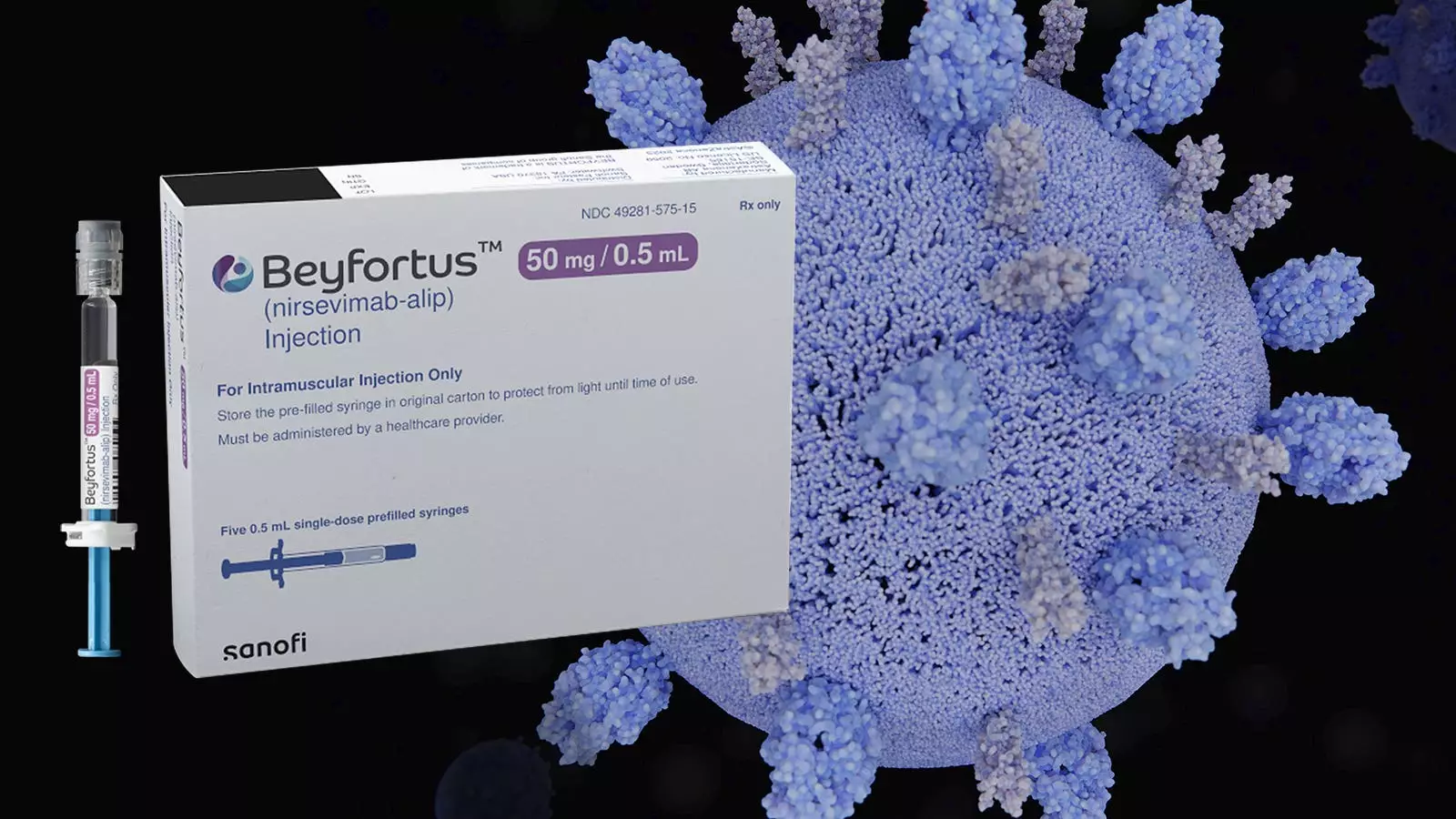The French prospective ENVIE study recently analyzed the effectiveness of the monoclonal antibody nirsevimab (Beyfortus) in protecting young infants against hospitalization for respiratory syncytial virus (RSV). The study found that nirsevimab was highly effective in preventing RSV-related hospitalization, pediatric intensive care unit (PICU) admissions, and mechanical ventilation among infants younger than 12 months of age.
In the logistic regression model used by the researchers, nirsevimab was estimated to be 83% effective in preventing hospitalization from RSV bronchiolitis among infants under 12 months old. Additionally, the study showed that nirsevimab was 69.6% effective in preventing RSV bronchiolitis leading to PICU admissions and 67.2% effective against RSV-related bronchiolitis requiring ventilatory support. The results indicated that nirsevimab prophylaxis was effective even in severe cases.
The effectiveness of nirsevimab appeared to be similar across different age groups of infants, highlighting the importance of administering this monoclonal antibody to young infants prior to RSV circulation. The results of this study have significant implications for public health, especially in low- and middle-income countries where the majority of RSV-attributable deaths occur. It is crucial to ensure that nirsevimab reaches all infants to prevent severe RSV infections.
The study authors compared their findings with previous trials, such as the MELODY trial, which showed slightly lower efficacy of nirsevimab in preventing RSV-related lower respiratory tract infections. However, the HARMONIE trial demonstrated similar efficacy to the ENVIE study in preventing hospitalizations from RSV. The differences in effectiveness may be attributed to the timing of outcome assessments, suggesting that nirsevimab effectiveness may decrease over time.
In the United States, the FDA approved nirsevimab for passive immunization against RSV in infants, with recommendations from the CDC’s Advisory Committee on Immunization Practices. The current guidelines recommend one dose of nirsevimab for infants under 8 months old born shortly before or entering their first RSV season under specific conditions related to maternal RSV vaccination status.
The study authors acknowledged several limitations of their research, including the observational case-control study design, which prevented causative conclusions. They also noted that the assessment of nirsevimab effectiveness was conducted early after the initiation of the free-of-charge nirsevimab campaign, leading to a relatively short assessment period. Shortages of nirsevimab during the program may have resulted in differential access among socioeconomic groups, introducing potential bias.
The ENVIE study provides valuable insights into the effectiveness of nirsevimab in preventing RSV-related hospitalizations in infants. The results underscore the importance of early intervention with nirsevimab to reduce the burden of severe RSV infections in young infants. Continued research and surveillance are necessary to optimize the use of nirsevimab and improve outcomes for vulnerable pediatric populations.


Leave a Reply